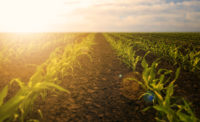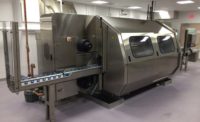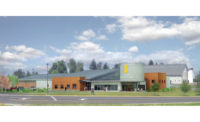University of Idaho secures $11M investment for nation’s largest research dairy
Research will address constraints on water usage and environmental quality while supporting the agricultural sectors of the dairy, livestock, cropland and food processing industries and exploring solutions for long-term sustainability.

Design of what is said to be the nation’s largest research dairy begins as University of Idaho (U of I), Moscow, Idaho, secured an additional $11 million for the 540-acre Idaho Center for Agriculture, Food and the Environment (CAFE).
Earlier this month, U of I received a $1 million gift from the J.R. Simplot Co., Boise, Idaho, to bring the university commitment for the project to $10 million in order to begin the design and construction phase of the project.
“We support this project given the overall focus to improve the sustainability of agriculture across Southern Idaho through a deeper understanding of 'how we farm' and its impacts on our soil and water,” says Scott Simplot, chairman of the J.R. Simplot Co. board of directors.
Led by U of I, the project’s footprint will span three counties, with the research dairy located near Rupert, Idaho, a discovery complex near Jerome and collaborative food science efforts with other institutions like the College of Southern Idaho, Twin Falls, Idaho.
“Projects like CAFE demonstrate the importance of our land-grant mission and the impact it has on the state,” says Scott Green, president of U of I. “The university is grateful to the Simplot Co. for helping us release this funding and to the state of Idaho for its commitment in support of agriculture and our dairy research.”
The timeline calls for construction to begin in mid-2021, with completion in 2023.
U of I College of Agricultural and Life Sciences (CALS) began work on building a large-scale research dairy. CAFE was reinvigorated in 2017 with a plan to acquire the $45 million needed for the project from internal U of I resources, partners in industry and state funds.
“We are extremely pleased to reach this milestone and believe it reflects the many positive steps we have taken as a university,” says Michael Parrella, CALS dean. “Our partnership with the dairy industry and a wide range of other groups to plan and fund this project underlines its importance to Idaho agriculture.”
Research at CAFE will address constraints on water usage and environmental quality while supporting the agricultural sectors of the dairy, livestock, cropland and food processing industries and exploring solutions for long-term sustainability.
Looking for a reprint of this article?
From high-res PDFs to custom plaques, order your copy today!





